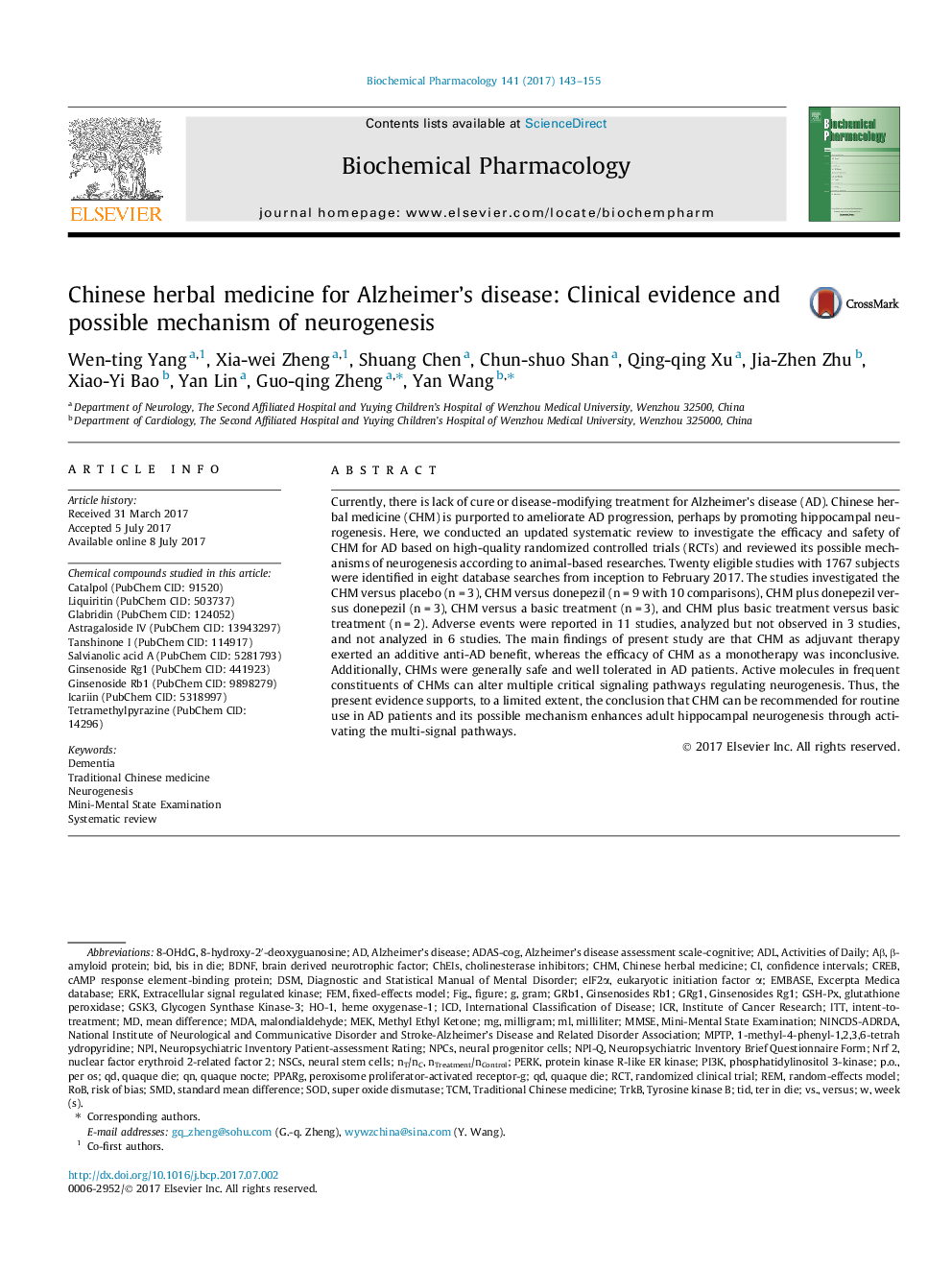| Article ID | Journal | Published Year | Pages | File Type |
|---|---|---|---|---|
| 5551959 | Biochemical Pharmacology | 2017 | 13 Pages |
Currently, there is lack of cure or disease-modifying treatment for Alzheimer's disease (AD). Chinese herbal medicine (CHM) is purported to ameliorate AD progression, perhaps by promoting hippocampal neurogenesis. Here, we conducted an updated systematic review to investigate the efficacy and safety of CHM for AD based on high-quality randomized controlled trials (RCTs) and reviewed its possible mechanisms of neurogenesis according to animal-based researches. Twenty eligible studies with 1767 subjects were identified in eight database searches from inception to February 2017. The studies investigated the CHM versus placebo (n = 3), CHM versus donepezil (n = 9 with 10 comparisons), CHM plus donepezil versus donepezil (n = 3), CHM versus a basic treatment (n = 3), and CHM plus basic treatment versus basic treatment (n = 2). Adverse events were reported in 11 studies, analyzed but not observed in 3 studies, and not analyzed in 6 studies. The main findings of present study are that CHM as adjuvant therapy exerted an additive anti-AD benefit, whereas the efficacy of CHM as a monotherapy was inconclusive. Additionally, CHMs were generally safe and well tolerated in AD patients. Active molecules in frequent constituents of CHMs can alter multiple critical signaling pathways regulating neurogenesis. Thus, the present evidence supports, to a limited extent, the conclusion that CHM can be recommended for routine use in AD patients and its possible mechanism enhances adult hippocampal neurogenesis through activating the multi-signal pathways.
Graphical abstractDownload high-res image (202KB)Download full-size image
